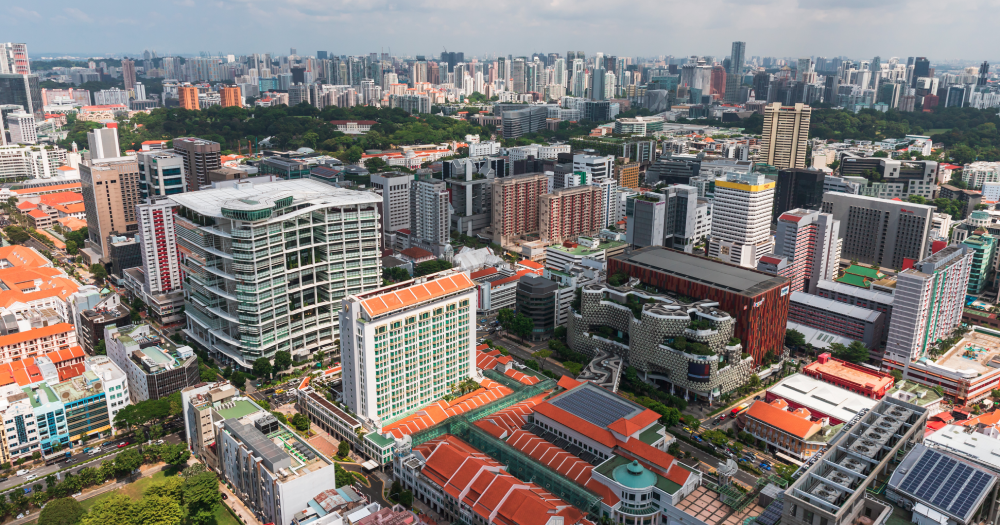While imposing an ethnic quota on private estates in order to foster diversity and integration is an option, it would not be easy to implement and would have far-reaching implications for the property market and for all private property owners, said Minister for National Development Lawrence Wong on Monday, Jan. 6.
This statement was a written answer in response to a question posed by Chia Shi-Lu, MP of Tanjong Pagar GRC about the possibility of introducing ethnic quotas for private estates in Singapore in order to "facilitate harmonious relations with Singaporean households" in those areas.
Currently, the Ethnic Integration Policy (EIP), which was implemented in 1989 to "preserve Singapore’s multi-cultural identity and promote racial integration and harmony," covers public housing but does not extend to private housing.
Estates in central area tend to have more non-citizens
Wong recognised that private estates in the central areas tend to have higher proportions of non-citizens living there, as it is closer to many people's workplaces.
In response to Chia's question about the proportions of various nationalities in private estates, Wong said that the proportions of non-citizens living in those estates are dynamic and change often, as the tenants move in and out.
Foreigners who are not Singapore permanent residents are not eligible to purchase HDB flats, as they are only available for purchase by Singapore PRs and citizens.
However, they do not face such restrictions when it comes to private property.
For non-Malaysian foreigners looking to rent an HDB flat, they can only do so if the block has not surpassed its quota of 11% per cent non-Malaysian foreigners, nor the neighbourhood quota of 8 per cent.
Integration strategies already implemented
"We recognise the importance of having diverse and well-integrated residential estates across the island, and are looking at various ways to achieve this," Wong wrote in the statement.
One of these ways is by utilising urban planning as a way to encourage more mixing, such as building more public housing in the city centre, which is currently largely comprised of private estates.
In addition, Wong stated that increasing the numbers of jobs outside of the centre of the city will spread out the non-citizen population across the island.
Even outside of neighbourhoods, integration strategies are employed to encourage "harmonious relations between Singaporeans and foreigners" in spaces such as workplaces, schools, shared public spaces, and through volunteering and community work.
Wong also pointed out that the National Integration Council works to help foreigners understand local and cultural norms, and encourages interactions between foreigners and Singaporeans.
He also pointed to the fact that there are more than 1,400 Integration and Naturalisation Champions, whose roles involve helping new immigrants settle into the community.
He also encouraged residents to "do their part" by reaching out to help new neighbours settle into their neighbourhoods.
Top image by Wengang Zhai on Unsplash.
If you like what you read, follow us on Facebook, Instagram, Twitter and Telegram to get the latest updates.
